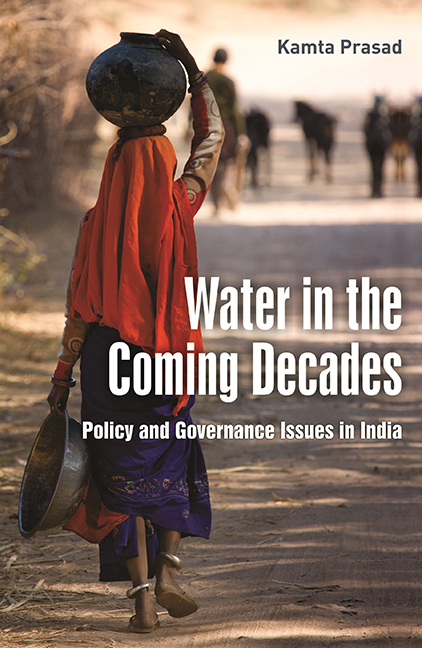Book contents
- Frontmatter
- Dedication
- Contents
- List of Tables
- List of Abbreviations
- Preface
- Acknowledgements
- Section I Overall Perspectives
- Section II Situational Analysis
- Section III Socio-economic, Institutional and Environmental Aspects
- Section IV Technological Options
- Section V Concluding Observations
- References
- Index
13 - Planning, Investigation and Database
Published online by Cambridge University Press: 13 July 2022
- Frontmatter
- Dedication
- Contents
- List of Tables
- List of Abbreviations
- Preface
- Acknowledgements
- Section I Overall Perspectives
- Section II Situational Analysis
- Section III Socio-economic, Institutional and Environmental Aspects
- Section IV Technological Options
- Section V Concluding Observations
- References
- Index
Summary
Planning is a useful tool for optimization. This chapter, therefore, makes a critical review of issues related to the formulation of large water resource projects involving guidelines, investigation and data. After providing the background information, it makes a critical review of the approved guidelines in light of the requirements of a good planning process, more particularly with regard to water-related data and gives suggestions for improvement. Planning touches on several aspects of water resources, which have been discussed in different chapters. Hence, some duplication is unavoidable, though this has been minimized by giving cross-references.
Introduction
Planning is an essential requirement for large water resource projects, which need data and information from varied sources. Besides, their execution is spread over a number of years; their effects also take a long time to manifest; they entail huge costs in terms of money and physical resources and have considerable environmental impacts. Decisions regarding these issues are often irreversible. Further, a large water resource project, though located at one place, has considerable effect elsewhere within the basin as a whole, giving rise to inter-state and international issues. Judicious planning is specially needed because the supply of water is limited and is becoming scarcer. Long-range planning also ensures that what is done at present does not create problems in future.
Water planning is needed not only at the macro-level but also at the microlevel like a village, a city or a factory. A village water security plan should be an integral part of village or rural development plan. Every village should have complete information of its water resources like rivers, ponds, wells and groundwater level. It should also have a drainage map. Information on changes in water scenario specific to the village should be provided to the village community so that it can take appropriate measures on time. And yet, such aspects have not received the attention in India that they deserve.
The planning procedures for large water resource projects prescribed by the authorities try to deal with several components of good planning such as (i) basin approach, (ii) baseline survey, (iii) cost benefit analysis (CBA), (iv) reliable database, (v) realistic assessment of water availability and demand, (vi) option assessment, (vii) environmental analysis, (viii) impact assessment, (ix) multidisciplinary teams and (x) evaluation of completed projects.
- Type
- Chapter
- Information
- Publisher: Foundation BooksPrint publication year: 2014



